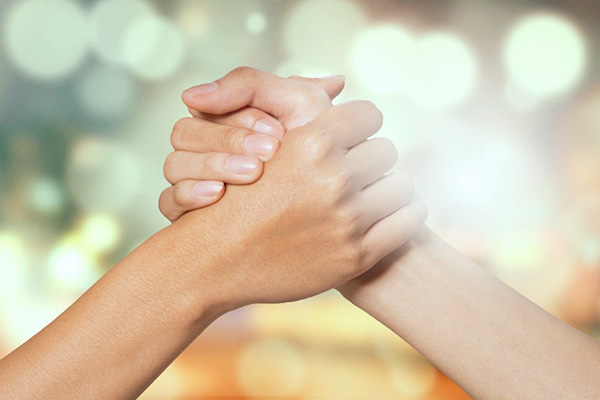sensitive
Anger Release Empowers The Empath
 As an empath, I’ve been personally and professionally targeted by others many times in my life. But I am not the only one. These challenges are common among the highly sensitive. Why do sensitives tend to experience so much bullying? I believe we tend to attract it because we are called to support others in balancing their emotions. We are meant to use our gift of empathy to help heal others.
As an empath, I’ve been personally and professionally targeted by others many times in my life. But I am not the only one. These challenges are common among the highly sensitive. Why do sensitives tend to experience so much bullying? I believe we tend to attract it because we are called to support others in balancing their emotions. We are meant to use our gift of empathy to help heal others.
But at times the empath becomes overwhelmed. She is only human and sometimes also needs to vent. Most of all the empath must learn to release anger and other negative emotion she may experience as a result of the injustice, callousness and even cruelty she often tends to suffer.
Unresolved anger is one of the underlying causes for many addictions and dysfunctional behaviors. Anger that leads to a sense of entitlement, and from entitlement comes dissolved hopes and dreams.
If we learn to surrender our egos and release entitlement, then we find the hopes and dreams we’ve lost return to us. Peace is the ultimate foundation of prosperity and well-being. Having peaceful thoughts and kind intentions for everyone invites abundance into our lives.
This doesn’t mean we have to be a ‘doormat’ for others. If we are truly at peace, our higher vibration commands a natural boundary and the Universe fills in the energetic gaps.
For example, while dealing with a difficult person, someone else may come along to interrupt the conversation with some humor. The Universal Spirit naturally intercedes on our behalf once we set good intentions for everyone by releasing our anger and resentment.
Spiritual Self-Care For Clairsentients
 We all have access to the four channels of psychic energy and intuition. These include clairvoyance (clear vision), claircognizance (clear thinking), clairaudience (clear hearing) and clairsentience (clear feeling). While everyone has access to each of these channels of inner guidance, one or more of these tend to be stronger for every individual.
We all have access to the four channels of psychic energy and intuition. These include clairvoyance (clear vision), claircognizance (clear thinking), clairaudience (clear hearing) and clairsentience (clear feeling). While everyone has access to each of these channels of inner guidance, one or more of these tend to be stronger for every individual.
Clairsentience is the pathway for receiving divine guidance and spiritual information through feelings and physical sensations. You are probably clairsentient if you often saying, “I feel” or “I sense.” For example, you may say, “I feel it would be a good idea,” or “I sense a bad vibe in this place,” or “I just don’t have a good feeling about that person.”
You may also experience clairsentience as ‘tingles’ on your skin or the back of your neck when your Angels or Guides are near or sending you a message. You probably also get ‘gut feelings’ or ‘hunches’ about things and typically experience the sensations in your solar plexus area.
Some clairsentients also pick up strongly on people and animals’ feelings and emotions. This is an aspect of clairsentience known as being an empath or a sensitive.
No matter how one uniquely experiences clairsentience, it is vital to practice good spiritual self-care. Clairsentients are especially vulnerable to energy influences and can easily get sucked into drama, addiction, and co-dependency – all of which negatively affect your psychic abilities and distract you from your true path.
Aligning With The New Earth Energy
 Have you been experiencing unusual anxiety or restlessness in recent months? Many spiritually aware and highly sensitive people all over the world have been feeling tense or nervous lately, while there is nothing particularly bothersome happening in their lives to cause such feelings. The reason for this is that there is currently a lot happening in our world on a cosmic level.
Have you been experiencing unusual anxiety or restlessness in recent months? Many spiritually aware and highly sensitive people all over the world have been feeling tense or nervous lately, while there is nothing particularly bothersome happening in their lives to cause such feelings. The reason for this is that there is currently a lot happening in our world on a cosmic level.
Old energy patterns that are no longer serving us have been gradually shifting and falling away, to be replaced by the new, improved energies for a new age in human evolution. As exciting and hopeful as these energy upgrades may be, you may not feel very grounded or secure in your physical body at the moment.
Some people describe the feeling as sense of ‘floating’ or ‘drifting,’ and many also report feeling unable to accurately interpret the new energies coming in. They feel disoriented or even confused. It is like being a newborn baby having to readjust to physical reality and learn all over again!
The emergence of a New Earth has been unfolding on a subtle energetic level for several years now at varying rates and frequencies. This global energy shift and spiritual awakening is now once again speeding up. It is inviting you to ‘upgrade’ yourself and your life. It is offering an energy pathway to establish an enhanced connection with your higher self or higher consciousness.
We are all being encouraged and supported at this time to lift off the old armor, drop our tired, worn-out fears and limiting beliefs, and allow instead a renewed purity and innocence to permeate our being.
When we are aligned with the Divine Light, there is no longer any need for competition, strife or worry. We do not envy what others have, or compare our own failures to their successes. Once we are fully aware of our connection to Divine Source, to all of God, Spirit, Creation, the Universe, be know that we will be provided for and that we need not fear or worry.
The Romantic Challenges Of Being An Empath
 I frequently do readings for clients who are discovering their empathic abilities, as well as awakened empaths who are still working on their self-empowerment. The majority of empaths that I have worked with over the years have all been in very high-stress romantic situations that do nothing but magnify what these highly sensitive people are already experiencing. While this is no doubt confusing, frightening and intense for the empath, one must consider the fact that it also greatly impacts their partners.
I frequently do readings for clients who are discovering their empathic abilities, as well as awakened empaths who are still working on their self-empowerment. The majority of empaths that I have worked with over the years have all been in very high-stress romantic situations that do nothing but magnify what these highly sensitive people are already experiencing. While this is no doubt confusing, frightening and intense for the empath, one must consider the fact that it also greatly impacts their partners.
An empath a highly sensitive person who is very aware of the feelings, moods and motivations of other people and are deeply affected by the energies around them. This is experienced by the empath in many ways, including as physical sensations, moods, and emotions, as well as an inner knowing of what lies beneath the surface of other people’s words and actions. An empath has the ‘psychic radar’ to hone in intuitively on the truth of a person or situation.
Relationships, especially romantic ones, can therefore be a nightmare for empaths, and their partners. While their partner may be saying one thing, the empath ‘knows’ or ‘feels’ something different, and can sense if their partner is being dishonest or deceitful. While this can be useful at times to protect the empath from pursuing relationships with the wrong kind of person, it can also be very damaging and destructive to a potentially happy, healthy relationship with loving partner.
It can be very disconcerting and intimidating for the romantic partner of an empath to feel so constantly questioned, judged and exposed. I get many calls from empaths who are deep in an argument stemming from their partner’s refusal to come clean about what is really going on, or what they are truly feeling. The more the partner protests, the more the empath pushes and prods, leading the partner to shut down, withdraw, or disconnect completely.
Don’t Walk On Eggshells Anymore!
 Do you often find yourself around people that make you feel like you have to monitor every single thing you say, for fear you may be hurting their feelings? Do you constantly have to be cautious and guarded around certain people in your life, because they internalize everything you say? It really is like walking on eggshells!
Do you often find yourself around people that make you feel like you have to monitor every single thing you say, for fear you may be hurting their feelings? Do you constantly have to be cautious and guarded around certain people in your life, because they internalize everything you say? It really is like walking on eggshells!
I used to have a friend like that. At first I complied, but then one day I decided to start talking like I would normally talk to my other friends. I wanted to see what effect it would have on this person. Well, it actually helped in the end, as it soon made her see how silly she was being. In fact, she even confessed to how she felt bad for reacting as if the entire world revolved around her and her feelings. It turned out to be a meaningful opportunity for her personal growth.
Also, have you ever known anyone whom you shared some inner most concern or anxiety with, and they act like you are making a mountain out of a molehill? You trusted them by sharing your inner most fear or heartache, and they react like it is nothing or you are just being silly. They may even turn around and act as if what you are saying is just plain wrong, or irrelevant! As a highly sensitive person I have experienced this many times in my life and it’s no fun, trust me. And if you’re like me, you just stop talking to this person all together about anything that may deeply matter to you.
These interpersonal experiences can be frustrating and hurtful, but also very valuable to learn from. As soon as this kind of interaction happens with someone, it is useful to reflect on whom you can really trust and have faith in, and who not. If you become more aware of whom you surround yourself with, more people will come into your life that will truly hear you and really have compassion and a deep understanding of what you’re trying to impart. They will also be willing and able to give great advice and be a great sounding board for you, without being egotistical or simply uncaring!
Your Personal Shift Into Conscious Living
 Every day we run into people. We meet clerks, bus drivers, cashiers and all kinds of people that we bump into around the neighborhood.
Every day we run into people. We meet clerks, bus drivers, cashiers and all kinds of people that we bump into around the neighborhood.
We greet and are greeted in different ways. We pick up on other peoples energies based on how they treat us, and sometimes we can telepathically feel what they are feeing and telling us with their eyes.
It’s up to us, each of us, to give light or darkness in every single interaction we have with one another.
I hope to empower each and every person and inspire everyone who reads this at this very moment. I want us to awaken from this very sleepy realm we live in; this physical weighed down realm.
I hope everyone will feel uplifted by my words and recognize that our actions and thoughts and every will be judged one day. Ultimately we will be the ultimate ones that judge ourselves. I want us to empower one another and ourselves. I want us to awaken!
There is a global shift in consciousness occurring. It’s been unfolding for some time now, and will continue to happen. The veil is thinning.
Those of us who have developed our inner psychic center and have tapped into that part that allows us to sense and feel more deeply, know that we are entering a new era in the evolution of humanity. We are evolving at a very rapid rate and those who are remaining stagnant and are unwilling to explore the intuitive and spiritual parts of their mind and psyche are still living in the narrow-minded classical realm.
I truly feel it’s time and a call has been put out to me to share this. If you already live in the quantum realm you will know exactly what I’m speaking of. Those of us who already live a conscious fifth dimensional life in a third dimensional world, know our place in the universe and are doing our best to make that difference for the greater good of mankind, our amazing planet and all its living beings, plants and animals. We are all connected. We are all neighbors, brothers and sisters.
Empaths Need Firm Psychosocial Boundaries
 Psychosocial balance is tricky for the empath. It requires managing expectations, checking our reactions and emotions, and most especially setting boundaries. Because it is so easy for us to link into the feelings and emotions of those around us, empaths often forget that others may not respond in kind.
Psychosocial balance is tricky for the empath. It requires managing expectations, checking our reactions and emotions, and most especially setting boundaries. Because it is so easy for us to link into the feelings and emotions of those around us, empaths often forget that others may not respond in kind.
For the empath it’s all about balancing your intuitive gifts with your expectations, and finally your responses. Work, friendships, relationships, all the things that encompass our daily lives, require vigilance to ensure that balance is maintained, or chaos will ensue.
For the Type A empath, jobs, friendships and relationships can end very abruptly with major repercussions. The more assertive empath tends to have the motto of “do unto others before they do unto you.” They will leave a job, a relationship or a friendship at the drop of a hat. The more subdued, timid empath tends to stay in miserable job situations, one-sided friendships, and sometimes downright abusive intimate relationships.
At work especially it is very important for all empaths to remember that there is almost always going to be some personality clashes. Others do not always view us favorably. Remember that you are there to do a job – your job. Staying focused on your work, the requirements of that job and your performance is your primary responsibility. Confronting someone, especially a superior, with “what’s your problem, I know you don’t like me” is counterproductive. Similarly the typical response of the introverted empath to quit, or at least never address any issues, is also futile.
Yes, it can be gut-wrenching or infuriating for empaths to know beyond a shadow of a doubt that a co-worker or boss doesn’t care for them, or has it out for them, but utilize your gift! As an empath you can read the feelings and intentions of others. This gives you a map to the personalities you are dealing with. Use that information to moderate your own responses to the situation and the individuals you are dealing with in your professional environment.